
Conference Speakers
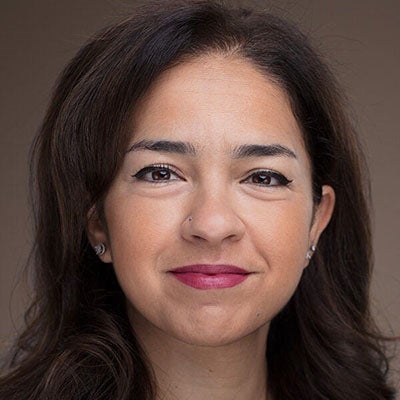
Noha Aboueldahab
Noha Aboueldahab is an Assistant Professor of International Law at Georgetown University in Qatar. An award-winning specialist in transitional justice, her work covers the fields of international law, foreign policy, human rights, and transitional justice. She is the author of Transitional Justice and the Prosecution of Political Leaders in the Arab Region (Hart Publishing, 2017). Her forthcoming book examines how Arab diasporas have expanded the political, intellectual, and socio-legal spaces of international law and transitional justice. Work authored by Aboueldahab has appeared in the Journal of International Criminal Justice, International Criminal Law Review, Foreign Policy magazine, Al Jazeera, and the Globe and Mail, among others. Since 2003, she has worked for various United Nations agencies, NGOs, and think tanks. She has regularly consulted for governments, international organizations, and media outlets. She is a member of the Society of Legal Scholars, the Middle East Studies Association, the Law and Society Association, the International Studies Association, and the American Society of International Law, where she serves on the advisory board of the Transitional Justice and Rule of Law interest group. Aboueldahab serves on the board of several other academic and civil society organizations.
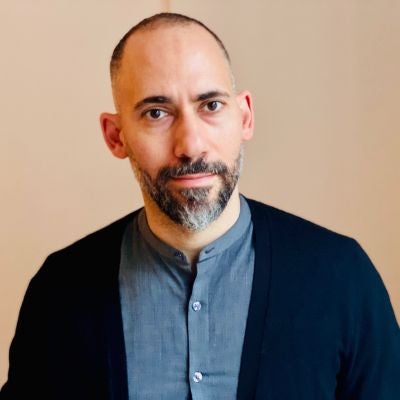
Ziad Abu-Rish
Ziad Abu-Rish is Associate Professor of Middle East Studies and Human Rights at Bard College, where he also directs the MA Program in Human Rights and the Arts. His research centers around state formation, economic development, and popular mobilization, particularly in Lebanon and Jordan. He is the author of several articles and book chapters, and co-editor of The Dawn of the Arab Uprisings: End of an Old Order? (2012). He serves as co-editor of Arab Studies Journal and Jadaliyya e-zine, and co-director of the Lebanese Dissertation Summer Institute and Middle East Studies Pedagogy Initiative.
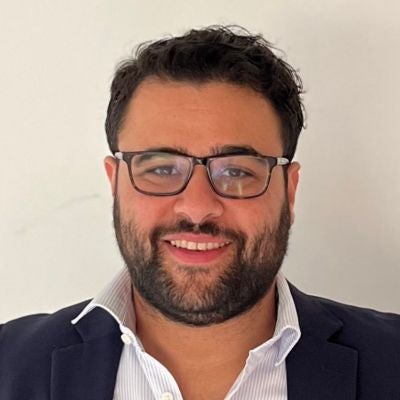
Zayne Abudaka
Zayne Abudaka is a co-Founder and Senior Fellow at the Institute for Social and Economic Progress (ISEP), a Palestine-based independent research institute with a mission to advance social science research in Palestine and the Arab region through experimental research. He is also a co-founder and Editor-In-Chief of the progressive Arabic-language media channel, Masa7a. Abudaka is the Treasurer and Member of the Board of Directors at the Palestine Institute for Public Diplomacy, an independent non-profit that aims to shift discourse and policy related to Palestine through people’s engagement and advocacy. In addition to his roles in the nonprofit field, he is also co-Founder of and Senior Partner at the Ramallah-based start-up studio and boutique consultancy, Momentum Labs, and a co-Founder and Chief Product Officer at the market research platform/ tech firm, MENA Analytics.
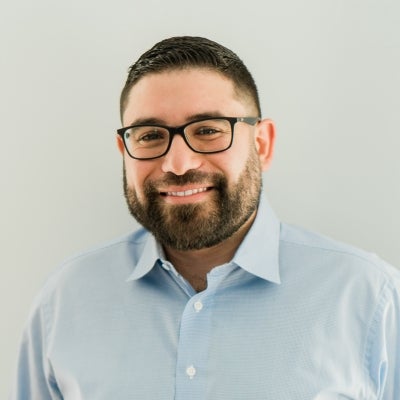
Jehad Abusalim
Jehad Abusalim is the Executive Director of the Washington, DC-based Institute for Palestine Studies (IPS-USA). He grew up in Deir el-Balah in the Gaza Strip, where he spent most of his life. He co-edited the anthology Light in Gaza: Writings Born of Fire, published by Haymarket Books in 2022. His writings have been featured in the Washington Post, Al-Jazeera, The Nation, Journal of Palestine Studies, and Vox. He has also appeared on Al-Jazeera, CNN, ABC, TRT World, Russia Today, and various radio stations and podcasts in the United States and internationally.
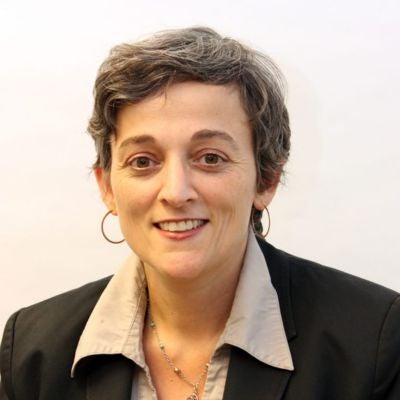
Fida Adely
Fida Adely is the Clovis and Hala Maksoud Chair in Arab Studies at Georgetown University and the Director of the Center for Contemporary Arab Studies. Her research interests include education, labor, development, and gender in the Arab world. She is the author of two books and many scholarly articles. Her most recent publication is Working Women in Jordan: Education, Migration, and Aspiration. Dr. Adely was previously a lecturer at Columbia University’s School for International and Public Affairs, as well as a Visiting Professor in the Department of International and Transcultural Studies at Teachers College, Columbia University. She currently serves on the board of the Middle East Studies Association and Insaniyyat: The Society of Palestinian Anthropologists.
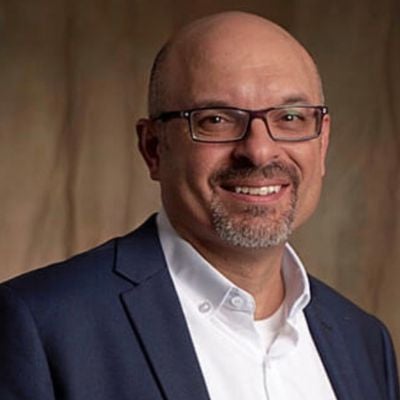
Wesam Ahmad
Since moving to Palestine in 2006, he has been working as a human rights advocate with Al-Haq, the oldest Palestinian Human Rights organization. He has contributed to the development of Al-Haq’s work in the area of Business and Human Rights, including corporate accountability, focusing on the role of corporate actors and the economic incentive structure perpetuating the continued colonization of Palestine. He is currently the Head of the Al-Haq Center for Applied International Law, which serves as the educational and capacity-building arm of the organization.
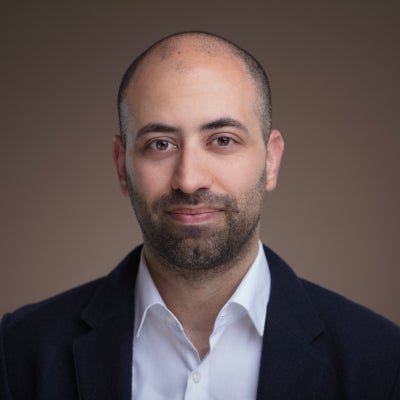
Abdullah Al-Arian
Abdullah Al-Arian is Associate Professor of History and Chair of International History at Georgetown University in Qatar, where he specializes in the modern Middle East and the study of Islamic social movements. He teaches introductory courses on the history of the Middle East, as well as advanced courses covering the history of modern Egypt, Islamic social movements, the Arab uprisings, and the history of US policy towards the Middle East. He is the author of Answering the Call: Popular Islamic Activism in Sadat’s Egypt (Oxford University Press, 2014), and the editor of Football in the Middle East: State, Society, and the Beautiful Game (Oxford University Press, 2022). He is the editor of the Critical Currents in Islam page on the Jadaliyya e-zine, where he is also a regular contributor. His writings have appeared in the New York Times, Foreign Policy magazine, Middle East Eye, Middle East Research and Information Project, Muftah, and Al Jazeera. He has also been featured in media interviews by Al-Shabaka: The Palestinian Policy Network and Democracy Now! Previously, he was the Carnegie Centennial Visiting Fellow at the Josef Korbel School of International Studies at the University of Denver.
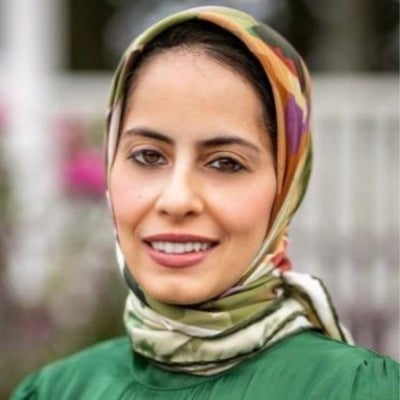
Laila Al-Arian
Laila Al-Arian is a Washington, DC-based journalist and the executive producer of Fault Lines, an award-winning current affairs program on Al Jazeera English. She began her time on the program as a producer, making documentaries on subjects ranging from the Trump administration’s Muslim ban to the impact of the heroin epidemic on children and an investigation into factory conditions producing garments for Walmart and Gap in Bangladesh. For her work, she has been honored with two News and Documentary Emmys, a Peabody, George Polk, Robert F Kennedy Award in journalism, and Overseas Press Club award. She has been nominated for 19 News and Documentary Emmys. Prior to joining Fault Lines, she worked for the news department at Al Jazeera English, covering stories such as Guantanamo Bay’s youngest detainee and the re-settlement of Iraqi refugees in the U.S. Her work has appeared in The Nation, Salon, The Independent, and other publications, and she is co-author of the book Collateral Damage: America’s War Against Iraqi Civilians.
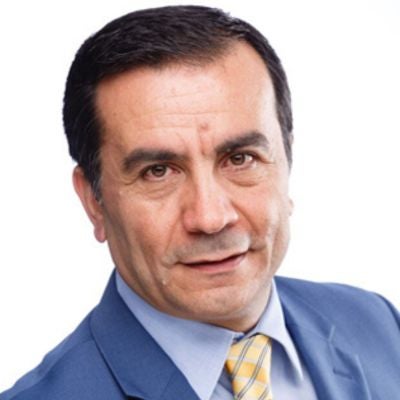
Khaled Al-Hroub
Khaled Al-Hroub is a Professor in Residence of the faculty of liberal arts at Northwestern University in Qatar. His focus is Middle Eastern studies and politics with particular interest on Islam and politics, Arab-Israeli conflict and Arab media studies. He was a Research Associate at the Centre of Islamic Studies of the Faculty of Asian and Middle Eastern Studies, University of Cambridge, where he was the founder and director of Cambridge Arab Media Project (CAMP) until 2012. He authored Hamas: A Beginners Guide (2006/2010), Hamas: Political Thought and Practice (2000), and edited Political Islam: Context versus Ideology (2011) and Religious Broadcasting in the Middle East (2012). Between 2000 and 2007 he was the host of a weekly book review program on Al Jazeera. His academic writings appeared in Middle East Journal, Middle East International, Journal for Palestine Studies, Shu’un Arabyya (Cairo), Critique: Critical Middle Eastern Studies, Holy Land Studies Journal, New Global Studies, The International Spectator (Rome), Outre Terre (Paris), Internationale Politik (Berlin). His weekly articles appear in Arab dailies (Jordan, Qatar, Egypt, UAE, Oman, Palestine, Mauritania and the UK); he has also been published in the Daily Star, International Herald Tribune, El Pais and La Razon, and is a frequent writer for OpenDemocracy.com and Qantara.de.
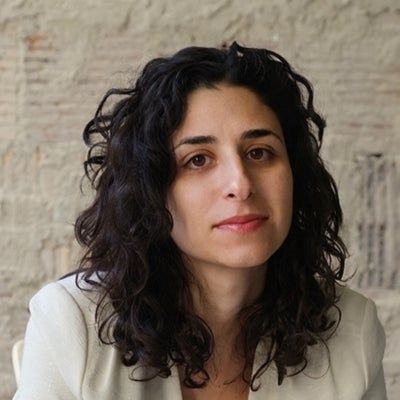
Arielle Angel
Arielle Angel is the editor-in-chief of Jewish Currents and a frequent host of the Jewish Currents podcast, On the Nose. In addition to Jewish Currents, her work has appeared in The Guardian, Guernica, and Off Assignment.
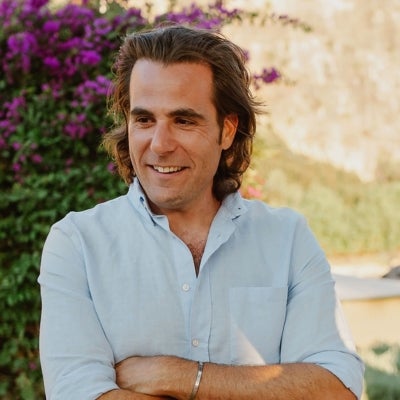
Seth Anziska
Seth Anziska is the Mohamed S. Farsi-Lindenbaum Professor of Jewish-Muslim Relations at University College London, where he is the founding director of the Middle East Research Centre. His research and teaching focus on modern Middle Eastern history, Palestine and Israel, archival practices and visual culture, and contemporary Arab and Jewish politics. He is the author of Preventing Palestine: A Political History from Camp David to Oslo (Princeton University Press: 2018; Arabic edition, Institute for Palestine Studies, 2022), which was awarded the British and Irish Association for Jewish Studies Book Prize. His writing has also appeared in the New York Times, the London Review of Books, the New York Review of Books, +972 Magazine, and the 55th Venice Biennale. He is currently a fellow at the Stellenbosch Institute for Advanced Study in South Africa, where he is working on an international history of Israel’s 1982 invasion of Lebanon and its afterlives, with research supported by the British Academy and Leverhulme Trust. He has also held fellowships at the Dorothy and Lewis B. Cullman Center for Scholars and Writers at the New York Public Library, the Norwegian Nobel Institute, New York University, and the American University of Beirut, and was a visiting professor at Dartmouth College.
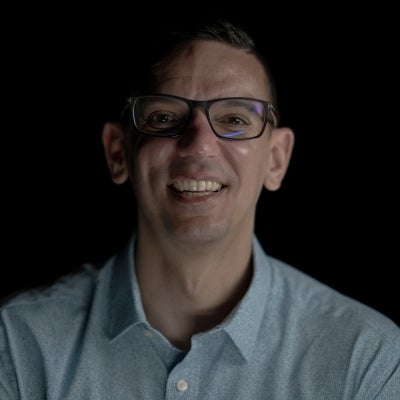
Muhannad Ayyash
Muhannad Ayyash is a Professor of Sociology at Mount Royal University. He is also a policy analyst at Al-Shabaka: The Palestinian Policy Network. He is the author of A Hermeneutics of Violence (UTP, 2019). He has published several academic articles on topics such as political violence, Zionism and colonial modernity, vaccine apartheid, anti-Palestinian racism, and Palestinian decolonial movements in journals such as the European Journal of International Relations, the European Journal of Social Theory, Distinktion, Critical Sociology, and Middle East Critique. He has co-edited two books, the most recent with Jeremy Wildeman titled, Canada as a Settler Colony on the Question of Palestine. He is also the author of multiple book chapters, and has written opinion pieces for Al-Jazeera, The Baffler, Middle East Eye, Mondoweiss, and The Breach, among others.
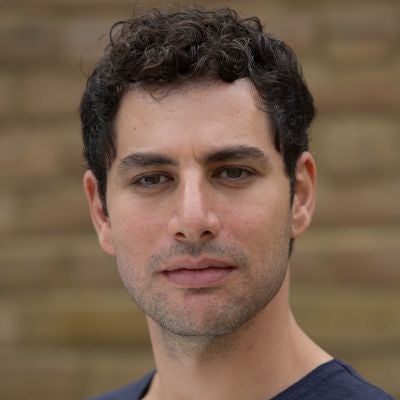
Tareq Baconi
Tareq Baconi is a writer. He is the author of Hamas Contained: The Rise and Pacification of Palestinian Resistance (Stanford University Press, 2018). His writing has appeared in the London Review of Books, The New York Review of Books, The New York Times, and The Washington Post, among others. He is the former senior analyst for Israel/Palestine at the International Crisis Group based in Ramallah. He serves as the president of the board of Al-Shabaka: The Palestinian Policy Network.
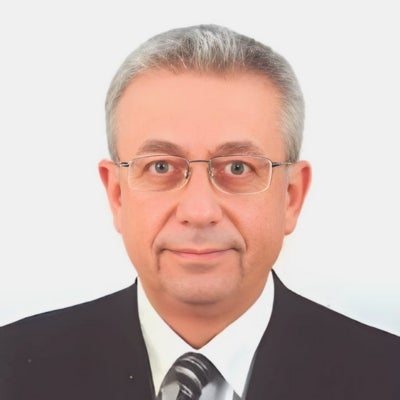
Mustafa Barghouti
Mustafa Barghouti has held the positions of Member of the Palestinian parliament; 2005 presidential candidate; General Secretary of the Palestinian National Initiative; former Minister of Information under the first National Unity Government in Palestinian history; physician; social, political, human rights and peace activist; one of the most active grassroots leaders in Palestine; campaigner for the development of Palestinian civil society and grassroots democracy; outspoken advocate of internal reform; international spokesperson for the Palestinian cause; leading figure in the non-violent, peaceful struggle against the Occupation; and organizer of international solidarity presence in the Palestine, Mustafa Barghouthi has made an extraordinary contribution to initiatives to peacefully challenge the ongoing Israeli Occupation of Palestine and bring it to end, as well as efforts to build the institutional framework of Palestinian civil society and promote the principles of internal democracy and good governance. He writes extensively for local and international audiences on civil society and democracy issues and the political situation in Palestine, as well as on health development policy in Palestine. He ran in the presidential elections of January 2005 as a Palestinian National Initiative (PNI) candidate, on an anti-corruption and pro-democracy platform. He achieved second place behind Mahmoud Abbas, with almost one-third of the total votes. He also headed the “Independent Palestine” Coalition that ran in legislative elections in January 2006, in which he secured a seat in the Palestinian parliament. In 1979, he was among the founders of a voluntary, non-governmental, and non-profit medical relief movement, the Palestinian Medical Relief Society (PMRS). In 2002, he co-founded the Palestinian National Initiative (PNI, or ‘Al Mubadara’; in English), along with Dr. Edward Said, Dr. Haider Abdel-Shafi, and Mr. Ibrahim Dakak, and currently serves as its General Secretary.
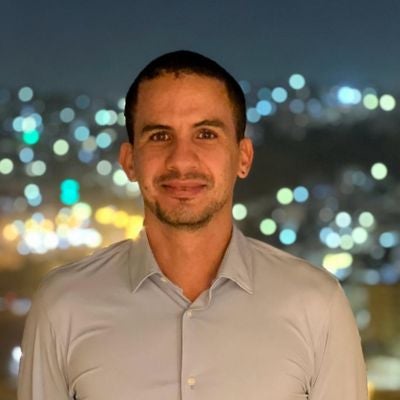
Nadim Bawalsa
Nadim Bawalsa is a historian of modern Palestine and author of Transnational Palestine: Migration and the Right of Return before 1948 (Stanford University Press, 2022), winner of the 2023 Nikkie Keddie book award by the Middle East Studies Association and the 2023 Palestine Book Award by Middle East Monitor. His other work has appeared in the Jerusalem Quarterly, NACLA Report on the Americas, the Journal of Palestine Studies, Al-Shabaka: The Palestinian Policy Network, and in two edited volumes—The Routledge Handbook of the History of the Middle East Mandates (2015) and the Routledge Handbook on Middle Eastern Diasporas (2022). He currently serves as the associate editor for the Journal of Palestine Studies and as an editorial board member of the Jerusalem Quarterly, the Journal of Palestine Studies, and Al-Shabaka. From 2020-2023, he was commissioning editor at Al-Shabaka, and prior to that, he worked as a history instructor in New York City. In 2019/2020, Bawalsa was awarded a PARC-NEH fellowship to complete research in Palestine toward his book manuscript.
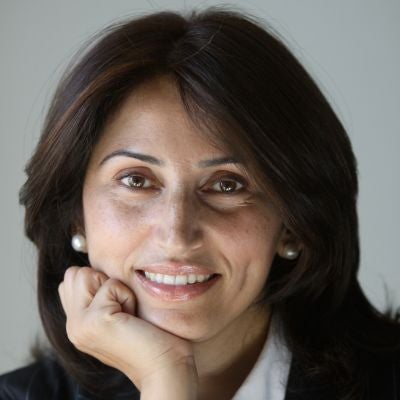
Diana Buttu
Diana Buttu is an expert in international human rights law. She was the former legal advisor to the Palestinian negotiating team and part of the team that assisted in the successful litigation of the illegality of the separation wall before the International Court of Justice.
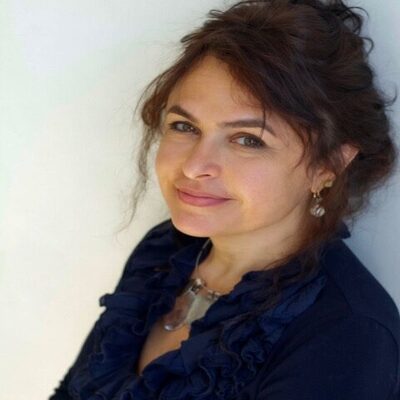
Selma Dabbagh
Selma Dabbagh is a writer and a lawyer. She has worked for human rights organizations and law firms in Jerusalem, Cairo, and London. In recent years she worked to establish the International Centre of Justice for Palestinians (ICJP) as its COO and is currently establishing the Palestine Justice Fund (PJF) a British strategic re-granter (foundation) with political change for Palestinians as its focus. She writes both fiction and non-fiction. Her debut novel Out of It (Bloomsbury, BQFP, 2011) set between Gaza, London, and the Gulf was listed as a best book on Israel/Palestine by The Guardian in 2024. Her fiction includes short stories, radio plays for the BBC and WDR (Germany) as well as productions for stage and screen. She is the editor of We Wrote In Symbols; Love and Lust by Arab Women Writers (Saqi, 2021). Since October 2023 she has been writing a series of blogs for the London Review of Books on Gaza.
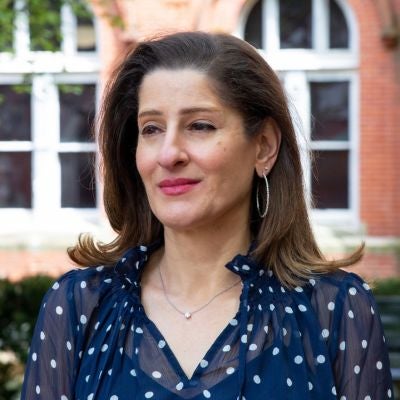
Marwa Daoudy
Marwa Daoudy is an Associate Professor of international relations at Georgetown University’s School of Foreign Service (SFS) and the Seif Ghobash Chair in Arab Studies at the Center for Contemporary Arab Studies (CCAS). Prior to joining Georgetown, Dr. Daoudy was a lecturer at Oxford University, a fellow with Oxford’s Middle East Center at St. Anthony’s College, and a visiting scholar at Princeton University’s Woodrow Wilson School of Public and International Affairs. Her research and teaching focus on critical and human security studies, environmental politics, climate security, water politics, negotiation theory, and Middle East politics. She is the author of two award-winning books, one on water security and negotiations between Syria, Turkey, and Iraq (Ernest Lémonon Award, 2005) and the Origins of the Syrian Conflict: Climate Change and Human Security’(CUP, 2020), awarded the International Studies Association (ISA)’s 2020 Harold and Margaret Sprout prize for best books in environmental studies. Her forthcoming book, under contract with Cambridge University Press, reflects on the meaning and implications of climate justice in the Middle East and North Africa. Her research was published in International Affairs, Global Environmental Politics, Wires Water, and PLOS Climate, amongst others. Her policy analysis was published in The Lancet, Foreign Affairs, the Council on Foreign Relations, New Security Beat Blog, and the Malcolm H. Kerr Carnegie Middle East Center paper series. In 2023-24, she was awarded a Wilson Center Fellowship. In 2022-23, she was a non-resident scholar at the Malcolm H. Kerr Carnegie Middle East Center in Beirut, where she led the climate change, conflict, and governance project.
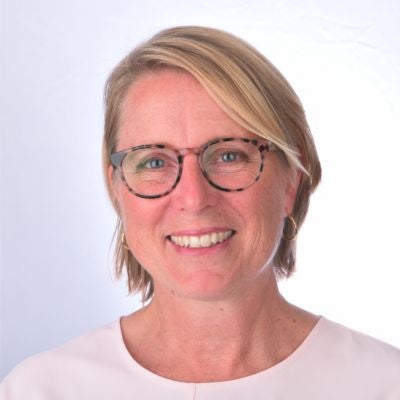
Rochelle Davis
Rochelle A. Davis is an Associate Professor & Sultanate Oman Chair in the Center for Contemporary Arab Studies in the School of Foreign Service Georgetown University, Washington D.C., USA. Her research focuses on refugees, war, and conflict, particularly Syrian and Iraqi refugees and internally displaced persons. Since 2010, her research projects have included training refugees and local community members to develop questions and conduct interviews. To date, these projects have amassed over 300 in-depth interviews with refugees and migrants in the region. She is also a Senior Researcher on a joint project between Georgetown University and the International Organization for Migration grant conducting a mixed-methods panel survey of over 3000 Iraqi households displaced since 2014 by ISIS/ISIL/Da’esh. Her first book, Palestinian Village Histories: Geographies of the Displaced, (Stanford University Press, 2012) was co-winner of the Middle East Studies Association’s Albert Hourani Book Award recognizing outstanding publications in Middle East studies. The book addresses how Palestinian refugees today write histories of their villages that were destroyed in the 1948 war, and the stories and commemorations of village life that are circulated in the diaspora. Professor Davis is currently writing a book on the role of culture in the U.S. military wars in Iraq and Afghanistan, based on research she has conducted since 2006.
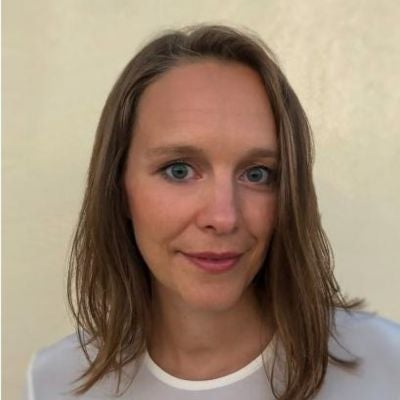
Sophie Richter-Devroe
Sophie Richter-Devroe is an Associate Professor in the Women, Society, and Development Program at the College of Humanities and Social Science, Hamad Bin Khalifa University. Sophie’s broad research interests are in the field of everyday politics and women’s activism in the Middle East. She is the author of Women’s Political Activism in Palestine: Peacebuilding, Resistance and Survival (University of Illinois Press, 2018), which won the National Women’s Studies Association/University of Illinois Press First Book Prize. She also conducted research on the oral histories, memories, and narratives of women from the often-forgotten Palestinian Naqab Bedouin population, and has worked with Dr Ruba Salih (SOAS) on a joint research on Palestinian refugees in Jordan, Lebanon, and the West Bank. More recently, she has led a research project on Syrian refugees in Italy and Greece. The project investigates the impact of the Syrian refugee crisis on the family and family-making practices in a transnational context. Her research is based on long-term ethnographic fieldwork in Palestine, Lebanon, Jordan, and Greece.
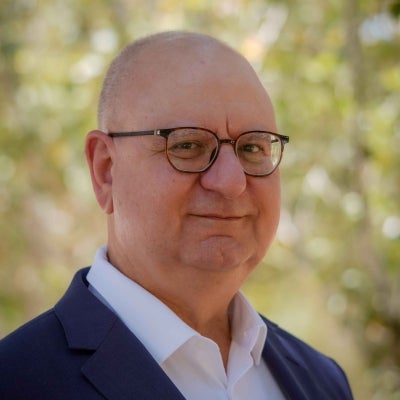
Beshara Doumani
Beshara Doumani is a Professor of History and the Mahmoud Darwish Chair for Palestinian Studies at Brown University. His research focuses on communities, places, and time periods marginalized by mainstream scholarship on the early modern and modern Middle East. He also writes on academic freedom, the politics and ethics of knowledge production, and the Palestinian condition. His books include Rediscovering Palestine: Merchants and Peasants in Jabal Nablus, 1700-1900, and Family Life in the Ottoman Mediterranean: A Social History. He is the former President of Birzeit University in Palestine. He is the founding director of Brown University’s Center for Middle East Studies and of the New Directions in Palestinian Studies Research Initiative. From 2008-2011, he led a team that produced the strategic plan for the establishment of the Palestinian Museum. He is currently serving as the co-editor of the Jerusalem Quarterly and working on a modern history of the Palestinians through the social life of stone. He joined Brown University in 2012 after fourteen years at the University of California, Berkeley, and eight years at the University of Pennsylvania. He was awarded fellowships by the Woodrow Wilson International Center for Scholars in Washington, D.C, the Wissenschaftskolleg zu Berlin, the Radcliffe Institute for Advanced Study at Harvard University; and the Institute for Advanced Studies at Princeton.
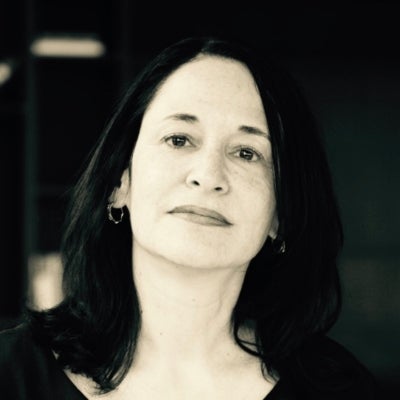
Nadia Abu El-Haj
Nadia Abu El-Haj is Ann Whitney Olin Professor in the Departments of Anthropology at Barnard College and Columbia University, Co-Director of the Center for Palestine Studies, and Chair of the Governing Board of the Society of Fellows/Heyman Center for the Humanities at Columbia University. She also serves as Vice President and Vice Chair of the Board at The Institute for Palestine Studies in Washington DC. She is the author of numerous journal articles published on topics ranging from the history of archaeology in Palestine to the question of race and genomics today. Abu El-Haj has published three books: Facts on the Ground: Archaeological Practice and Territorial Self-Fashioning in Israeli Society (2001), which won the Albert Hourani Annual Book Award from the Middle East Studies Association in 2002, The Genealogical Science: The Search for Jewish Origins and the Politics of Epistemology (2012) and Combat Trauma: Imaginaries of War and Citizenship in Post 9/11 America (Verso 2022)
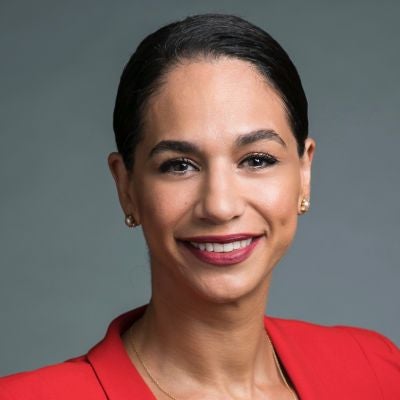
Noura Erakat
Noura Erakat is a human rights attorney and Professor of Africana Studies and the Program of Criminal Justice at Rutgers University, New Brunswick. She is the author of Justice for Some: Law and the Question of Palestine (Stanford University Press, 2019), which received the Palestine Book Award and the Bronze Medal for the Independent Publishers Book Award in Current Events/Foreign Affairs. She is the co-founding editor of Jadaliyya and an editorial board member of the Journal of Palestine Studies. Noura is a co-founding board member of the DC Palestinian Film and Arts Festival and a Board Member of Palestine Legal and the Center for Constitutional Rights. In 2024, she served as the Co-Chair of an Independent Task Force on the Application of National Security Memorandum-20 to Israel, which submitted a report to the White House recommending suspending U.S. weapons transfers to Israel. She has served as Legal Counsel for a Congressional Subcommittee in the US House of Representatives, as Legal Advocate for the Badil Resource Center for Palestinian Refugee and Residency Rights, and as national organizer of the US Campaign to End the Israeli Occupation. Noura has also produced video documentaries, including “Gaza In Context” and “Black Palestinian Solidarity.” Her writings have appeared in The Washington Post, The New York Times, the Los Angeles Review of Books, The Nation, Al Jazeera, and the Boston Review. She is a frequent commentator on CBS News, CNN, MSNBC, CBS, Fox News, the BBC, and NPR, among others. She has been awarded fellowships at Harvard Divinity School and Brown University’s Center for Middle East Studies. In 2022, she was selected as a Freedom Fellow by the Marguerite Casey Foundation.
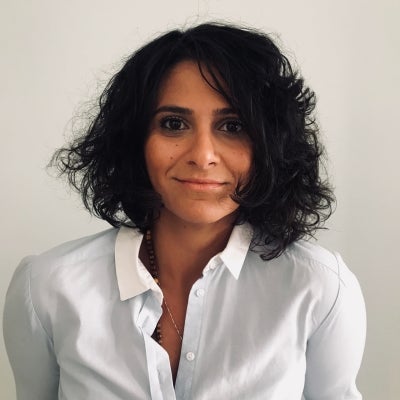
Tamara Essayyad
Tamara Essayyad is an international lawyer and negotiator with over ten years of legal experience and over twenty years of international professional experience in the US, Europe, and the Middle East. As Senior Legal Adviser to the UN supporting the Palestinian-Israeli Negotiations, she provided legal counsel on all matters related to the peace process, including international law, treaties, and public policy. Additionally, she advised the State of Palestine on numerous economic cooperation agreements and legislative reform. She has taught international law and policy for over a decade.
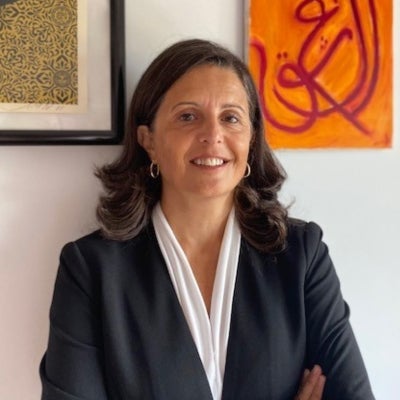
Leila Farsakh
Leila Farsakh is Professor of political science at the University of Massachusetts Boston. She is the editor of Rethinking Statehood in Palestine: Self-Determination and Decolonization Beyond Partition (University of California Press, 2021), and author of Palestinian Labor Migration to Israel: Labour, Land and Occupation, (London: Routledge, second edition, 2012) as well as the co-editor of The Arab-Jewish Questions: Geographies of Engagement in Palestine and Beyond (Columbia University Press, 2020). Before joining academia, Professor Farsakh worked with a number of international organizations, including the Organization for Economic Cooperation and Development (OECD) in Paris. In 2001, she won the Peace and Justice Award from the Cambridge Peace Commission, in Cambridge-Massachusetts.
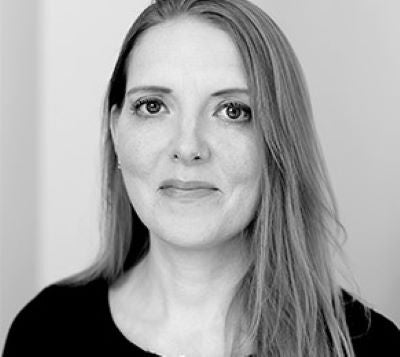
Blinne Ní Ghrálaigh
Blinne Ní Ghrálaigh KC is a senior Irish barrister based in Matrix Chambers in London, specialising in international law and human rights. She appears in domestic and international courts and tribunals, including most recently in the International Court of Justice on behalf of South Africa in its case against Israel for violation of the Genocide Convention, having previously acted for Croatia in its genocide case against Serbia. She is called to the Bars of Ireland, North and South, and of England and Wales, is the former Vice Chair of the Bar Human Rights Committee, and is on the International Criminal Court’s list of Counsel. She is a former Visiting Fellow at Harvard Law School, where the dual focus of her research was on the Arms Trade Treaty and on Israeli Military Courts in occupied Palestinian territory. Widely recognised as a leader in her field, much of her practice focuses on justice and accountability for victims of State violence, including victims of the ‘The Troubles’ in the North of Ireland, and on the protection of the rights to free speech and protest. She was ‘commended’ Barrister of the Year in the 2022 Lawyer Awards for her defence of the ‘Colston Four’, acquitted of toppling a statue of a slave trader during the course of a Black Lives Matter protest. Previously named Public International Law Junior Lawyer of the Year, she is currently nominated for Public International Law King’s Counsel (KC) of the Year in the 2024 Legal 500 Awards.
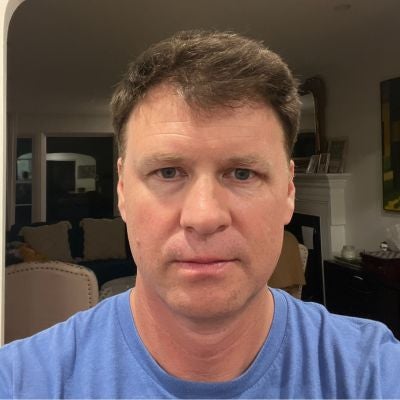
Ryan Grim
Ryan Grim is the co-founder of Drop Site News and the host of the podcast Deconstructed. He was previously D.C. Bureau Chief for The Intercept and the Washington bureau chief for HuffPost, where he led a team that was twice a finalist for the Pulitzer Prize and won once. He edited and contributed reporting to a groundbreaking investigative project on heroin treatment that not only changed federal and state laws but also shifted the culture of the recovery industry. The story, by Jason Cherkis, was a Pulitzer finalist and won a Polk Award. He has been a staff reporter for Politico and the Washington City Paper and is a co-host of the show Counter Points. He is the author of the books We’ve Got People (2019), This Is Your Country on Drugs (2009), and The Squad: AOC and the Hope of a Political Revolution (2023).
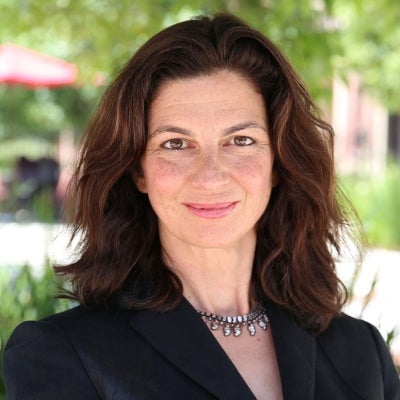
Sarah Gualtieri
Sarah Gualtieri is a Professor of History and American Studies at Georgetown University in Qatar. Professor Gualtieri’s research and teaching cover Middle Eastern studies, migration, Arab American studies, and critical ethnic studies, with a particular focus on race, gender, and power. She is the author of Between Arab and White: Race and Ethnicity in the Early Syrian American Diaspora (University of California Press, 2009) and Arab Routes: Pathways to Syrian California (Stanford University Press, 2019), which won the Arab American Book Award and the Alixa Naff Prize in Migration Studies. She joins GU-Q from the University of Southern California, where she was a professor in the departments of American Studies and Ethnicity, History, and Middle East Studies. She has received numerous national fellowships, including the National Endowment for the Humanities, the American Council of Learned Societies, and the Social Science Research Council.
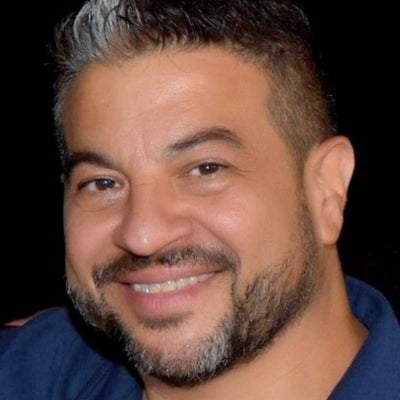
Bassam Haddad
Bassam Haddad is Director of the Middle East and Islamic Studies Program and Associate Professor at the Schar School of Policy and Government at George Mason University. He is the author of Business Networks in Syria: The Political Economy of Authoritarian Resilience (Stanford University Press, 2011) and co-editor of A Critical Political Economy of the Middle East (Stanford University Press, 2021). He is Co-Founder/Editor of Jadaliyya Ezine and Executive Director of the Arab Studies Institute. He serves as the Founding Editor of the Arab Studies Journal and the Knowledge Production Project. He is co-producer/director of the award-winning documentary film, About Baghdad, and director of the acclaimed series Arabs and Terrorism. Bassam is Executive Producer of Status Podcast Channel and Director of the Middle East Studies Pedagogy Initiative (MESPI). He received MESA’s Jere L. Bacharach Service Award in 2017 for his service to the profession. Currently, Bassam is working on his second Syria book titled Understanding The Syrian Tragedy: Regime, Opposition, Outsiders (forthcoming, Stanford University Press).
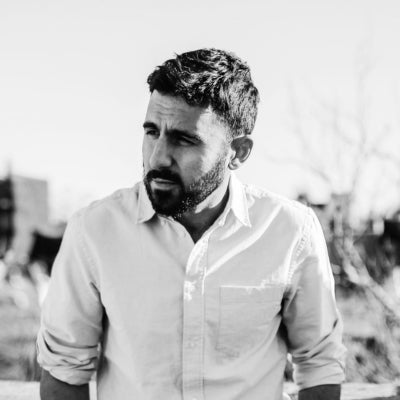
Omar Robert Hamilton
Omar Robert Hamilton is an author, editor, and co-founder of the Palestine Festival of Literature. Established in 2008, PalFest — as it is known — takes international authors to Palestine, where they stage free, public events with their Palestinian counterparts in cities across the West Bank and ’48. Each day, the guests travel to a different city where they meet activists, artists, and scholars by day, and stage their events at night. International guests will typically visit Hebron, Jerusalem, Nablus, Lydd, Bethlehem, and Haifa. In 2012, the festival took place exclusively in Gaza, entering through Egypt in the one year the Muslim Brotherhood was in power. PalFest has taken over 100 international authors, editors, publishers, and agents over twelve editions of the festival and published two major anthologies of the work produced as a result. Since October 7th, PalFest has been producing major events internationally to raise cultural pressure against the genocide, assisting writers and publishers with ongoing engagements on Palestine, and helping Gazan writers reach new audiences however possible.
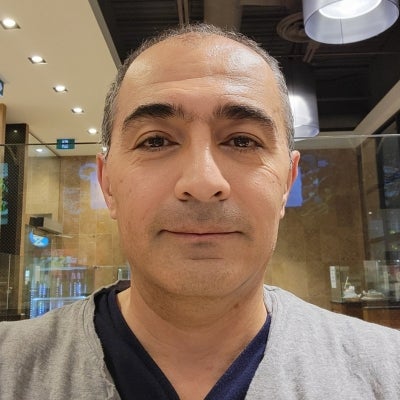
Nader Hashemi
Nader Hashemi is the Director of the Alwaleed Center for Muslim-Christian Understanding and an Associate Professor of Middle East and Islamic Politics at the Edmund A. Walsh School of Foreign Service at Georgetown University. Dr. Hashemi was previously the founding Director of the Center for Middle East Studies at the Josef Korbel School of International Studies at the University of Denver. While there, he was also Co-Director of the Religion and International Affairs certificate program, as well as the Political Theory Initiative. His intellectual and research interests lie at the intersection of comparative politics and political theory, in particular debates on the global rise of authoritarianism, religion and democracy, secularism and its discontents, Middle East and Islamic politics, democratic and human rights struggles in non-Western societies and Islam-West relations. He is the author of Islam, Secularism and Liberal Democracy: Toward a Democratic Theory for Muslim Societies (Oxford University Press, 2009) and co-editor of The People Reloaded: The Green Movement and the Struggle for Iran’s Future (Melville House, 2011), The Syria Dilemma (MIT Press, 2013), Sectarianization: Mapping the New Politics of the Middle East (Oxford University Press, 2017) and a four-volume study on Islam and Human Rights: Critical Concepts in Islamic Studies (Routledge, 2023). His new book is called “The Global Divide over Israel and Palestine.” He is also a Non-Resident Fellow at Democracy for the Arab World Now (DAWN).
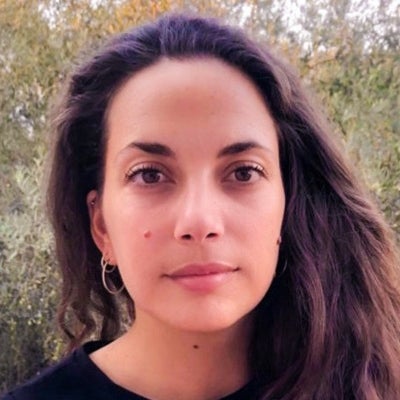
Yara Hawari
Yara Hawari is the co-director of Al-Shabaka, the Palestinian Policy Network. She previously served as the Palestine policy fellow and senior analyst. She taught various undergraduate courses at the Institute of Arab and Islamic Studies at Exeter. In addition to her academic work, her political analysis has been featured in many international media outlets, including The Guardian, Foreign Policy, and Al Jazeera English. Dr. Hawari published her first novel, The Stone House, in 2021 and is the host of the podcast series Rethinking Palestine.
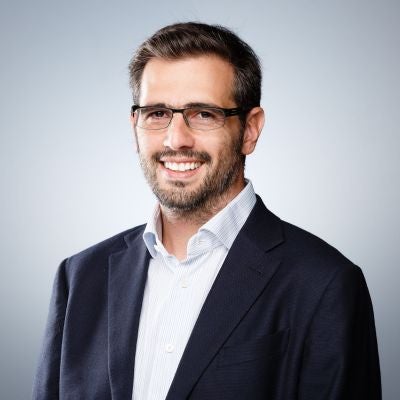
Sami Hermez
Sami Hermez is the Director of the Liberal Arts Program and Associate Professor in Residence of anthropology at Northwestern University in Qatar. He is the author of War is Coming: Between Past and Future Violence in Lebanon (UPenn 2017), and My Brother, My Land: A Story from Palestine (Stanford 2024), that tells the story of a Palestinian family resisting ongoing Israeli settler colonialism. His broader research concerns include the study of social movements, the state, the future, memory, violence, and critical security in the Arab World. He has held posts as a visiting scholar in the Department of Anthropology at Harvard University, University of Pittsburgh’s Visiting Professor of Contemporary International Issues, a visiting professor of anthropology at Mt. Holyoke College, and a postdoctoral fellow at the Centre for Lebanese Studies, St. Antony’s College, Oxford University.
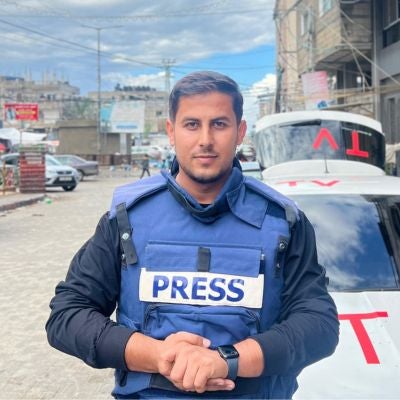
Ahmed Hijazi
Ahmed Hijazi is a Palestinian activist and journalist from Gaza. He is a goodwill ambassador, former representative of Palestinian youth in the European Union, and recipient of the best content creator in Palestine award for 2021. Throughout his career, he has hosted a variety of programs across notable media channels, including “Roya,” “Al-Mashhad,” and “Arab News.”
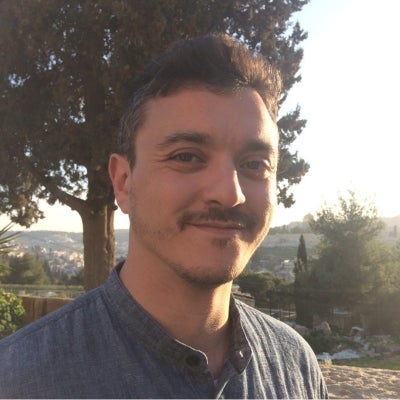
Saleh Hijazi
Saleh Hijazi is the Apartheid-Free Policy Coordinator at the Palestinian Boycott, Divestment and Sanctions National Committee (BNC), the leadership of the global nonviolent movement working to end complicity with and towards dismantling Israel’s settler-colonialism, military occupation, and apartheid. Before joining the BDS movement, he spent 11 years at Amnesty International, most recently as MENA Deputy Regional Director, and was co-author of the organization’s report Israel’s Apartheid Against Palestinians: Cruel System of Domination and Crime Against Humanity. He had previously worked with the Al-Quds University Human Rights Clinic in Palestine.
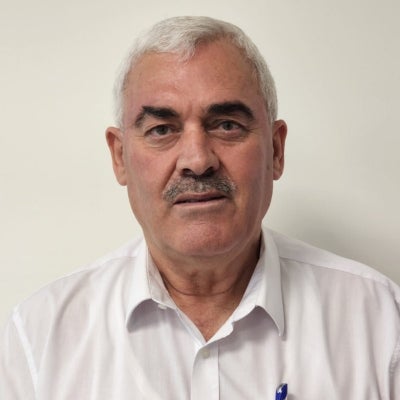
Shawan Jabarin
Shawan Jabarin is an award-winning human rights activist and lawyer. He is the General Director of Al-Haq, a non-governmental human rights organization based in the West Bank, and he has special consultative status with the United Nations Economic and Social Council.
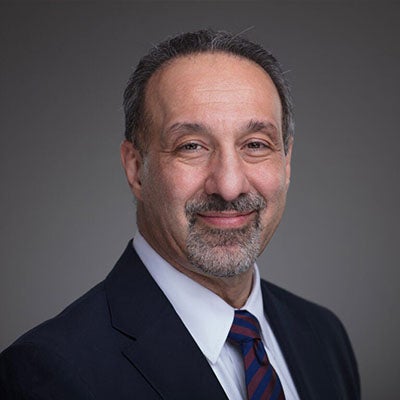
Mehran Kamrava
Mehran Kamrava is a Professor of Government at Georgetown University in Qatar. His research focuses on the modern political history and contemporary issues of the Middle East. He is the author of numerous journal articles and books, including most recently How Islam Rules in Iran: Theology and Theocracy in the Islamic Republic (Cambridge University Press, 2024); Righteous Politics: Power and Resilience in Iran (Cambridge University Press, 2023); A Dynastic History of Iran: From the Qajars to the Pahlavis (Cambridge University Press, 2022); Triumph and Despair: In Search of Iran’s Islamic Republic (Oxford University Press, 2022); A Concise History of Revolution (Cambridge University Press, 2020); Troubled Waters: Insecurity in the Persian Gulf (Cornell University Press, 2018); Inside the Arab State (Oxford University Press, 2018); The Impossibility of Palestine: History, Geography, and the Road Ahead (Yale University Press, 2016); Qatar: Small State, Big Politics (Cornell University Press, 2015); The Modern Middle East: A Political History Since the First World War, 3rd ed. (University of California Press, 2013); and Iran’s Intellectual Revolution (Cambridge University Press, 2008). His edited books include The Sacred Republic: Power and Institutions in Iran (2023); The Routledge Handbook of Persian Gulf Politics (2020); The Great Game in West Asia: Iran, Turkey, and the Southern Caucasus (2017); Fragile Politics: Weak States in the Greater Middle East (2016); Beyond the Arab Spring: The Evolving Ruling Bargain in the Middle East (2015); The Political Economy of the Persian Gulf (2012); The Nuclear Question in the Middle East (2012); and The International Politics of the Persian Gulf (2011).
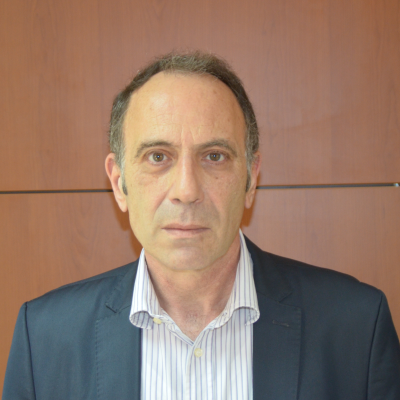
Raja Khalidi
Raja Khalidi is the Director General at the Palestine Economic Policy Research Institute (MAS). He has conducted research and published and lectured widely on Palestinian economic conditions in Lebanon, in the Arab region in Israel, and in the occupied territories. He worked with the United Nations Conference on Trade and Development (UNCTAD) from 1985 to 2013. As a senior economist, he served as Coordinator of its Programme of Assistance to the Palestinian people, Head of its Debt and Development Finance Branch, and Chief of the Office of the Director of the Division of Globalization and Development Strategies.
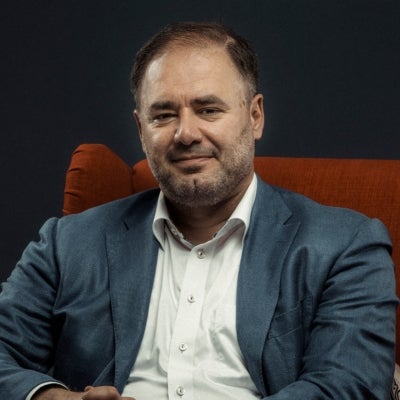
Wadah Khanfar
Wadah Khanfar is the President of Al Sharq Forum, an independent network dedicated to developing long-term strategies for political development, social justice, and the economic prosperity of the people of the Middle East. He previously served as the Director General of Al Jazeera Media Network. He was ranked first by Foreign Policy magazine in the FP Top 100 Global Thinkers in 2011, first by Fast Company in the 100 Most Creative People in Business in 2011, and as one of the most “Powerful People in the World” by Forbes magazine in 2009. In 2008, the World Economic Forum named Khanfar one of the “Young Global Leaders.” During his tenure, Al Jazeera expanded from a single channel to a media network with multiple outlets, including Al Jazeera Arabic, Al Jazeera English, Al Jazeera Documentary, Al Jazeera Sport, Al Jazeera’s news websites, the Al Jazeera Media Training and Development Center, the Al Jazeera Center for Studies, Al Jazeera Mubasher (Live), and Al Jazeera Mobile.
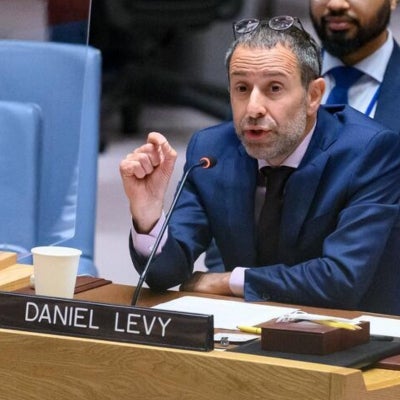
Daniel Levy
Daniel Levy is the President of the U.S./Middle East Project (USMEP), which advances an Israeli-Palestinian peace in which international legality and equality is upheld, respecting the rights of all people. USMEP also looks at regional conflicts, trends, and geopolitics. From 2012 to 2016, he was Director for the Middle East and North Africa at the European Council on Foreign Relations. Prior to that, he was a senior Fellow and Director of the New America Foundation’s Middle East Taskforce in Washington, D.C.
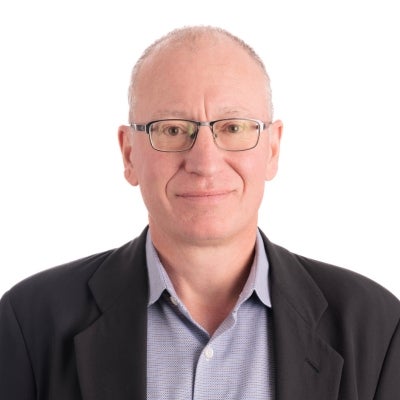
Marc Lynch
Marc Lynch is a Professor of political science at George Washington University and Director of the Elliott School’s Middle East Studies Program. He is also the founding director of the Project on Middle East Political Science and co-director of the Program on African Social Research. His recent books include Making Sense of the Arab State, The Political Science of the Middle East, The One State Reality, and The New Arab Wars.
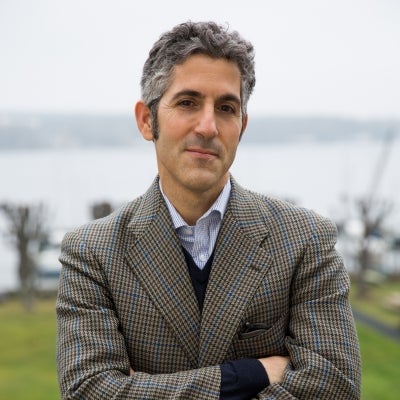
Ussama Makdisi
Ussama Makdisi is Professor of History and Chancellor’s Chair at the University of California Berkeley. He was previously a Professor of History and the first holder of the Arab-American Educational Foundation Chair of Arab Studies at Rice University in Houston. From 2012 to 2013, he was an invited Resident Fellow at the Wissenschaftskolleg zu Berlin (Institute for Advanced Study, Berlin). The Carnegie Corporation named Makdisi a 2009 Carnegie Scholar as part of its effort to promote original scholarship regarding Muslim societies and communities, both in the United States and abroad. Makdisi was awarded the Berlin Prize by the American Academy of Berlin. His most recent book, Age of Coexistence: The Ecumenical Frame and the Making of the Modern Arab World, was published in 2019 by the University of California Press. He is also the author of Faith Misplaced: The Broken Promise of U.S.-Arab Relations, 1820-2001 (Public Affairs, 2010). His previous books include Artillery of Heaven: American Missionaries and the Failed Conversion of the Middle East (Cornell University Press, 2008), which was the winner of the 2008 Albert Hourani Book Award from the Middle East Studies Association, the 2009 John Hope Franklin Prize of the American Studies Association, and a co-winner of the 2009 British-Kuwait Friendship Society Book Prize given by the British Society for Middle Eastern Studies. He is also the author of The Culture of Sectarianism: Community, History, and Violence in Nineteenth-Century Ottoman Lebanon (University of California Press, 2000). Makdisi co-hosts a new podcast called Makdisi Street.
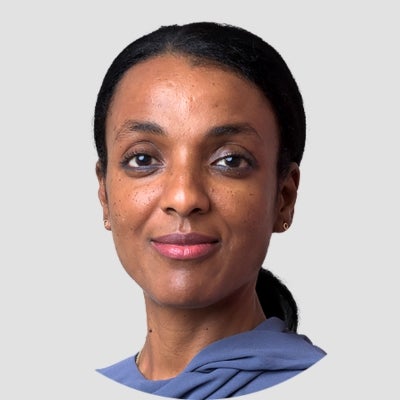
Nesrine Malik
Nesrine Malik is an acclaimed British Sudanese author and journalist known for her wide-ranging commentary on issues of race, identity, politics, and international affairs. Her book We Need New Stories: Challenging the Toxic Myths Behind Our Age of Discontent (2019) critiques the narrative foundations of increasingly intolerant and authoritarian politics in Britain and the United States, exploring how once-fringe views have gone mainstream. Her columns in leading outlets, including the Guardian, New York Times, and Washington Post, address topics ranging from Islamophobia and feminism to African politics, with deep insights into the ways colonial and postcolonial legacies shape our contemporary world. Malik received the 2021 Robert B. Silvers Prize for Journalism.
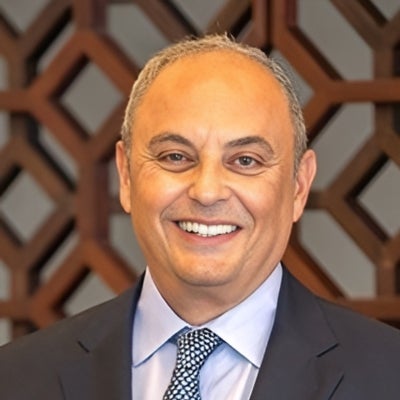
Safwan M. Masri
Safwan M. Masri is the Dean of Georgetown University in Qatar and a Distinguished Professor of the Practice at Georgetown’s Walsh School of Foreign Service. Before joining Georgetown in October 2022, Professor Masri served as Executive Vice President for Global Centers and Global Development at Columbia University and was a Senior Research Scholar at Columbia’s School of International and Public Affairs. Prior to that, he held the position of Vice Dean and Professor at Columbia Business School, and previously taught engineering at Stanford University. He was also a visiting professor at INSEAD (Institut Européen d’Administration des Affaires). Dean Masri is the author of Tunisia: An Arab Anomaly (Columbia University Press, 2017). He is a lifetime member of the Council on Foreign Relations and an honorary fellow of the Foreign Policy Association. He is the founding chairman of King’s Academy and Queen Rania Teacher Academy in Jordan. Currently, he serves as a trustee of International College in Beirut and is a director of AMIDEAST and Endeavor Jordan.
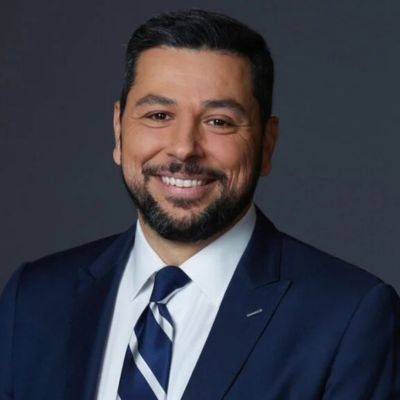
Ayman Mohyeldin
Ayman Mohyeldin is the host of MSNBC’s “AYMAN,” airing from 7-9 pm ET on Saturdays and Sundays. The perspective program is Ayman’s take on the world of politics, current affairs, culture, and more. His program features global leaders, US politicians, journalists, and analysts on pressing US and international political, social, and cultural news items. He has anchored MSNBC’s breaking news coverage of the Israel-Hamas war and was involved in special coverage of the 2020 Election and the insurrection at the US Capitol. Mohyeldin has also field anchored during some of the biggest domestic and international news stories over the past decade. Previously, Mohyeldin spent many years as a foreign correspondent covering the Middle East, Asia, and Europe. He has reported from dozens of countries during times of war, political turmoil, and natural disasters. His coverage of the Arab Spring was praised for its distinction around the world. Mohyeldin also covered major conflicts, including the Israeli-Palestinian conflict, the Iraq war, revolutionary protests in Ukraine, and nuclear tensions on the Korean peninsula. Mohyeldin developed and hosted the award-winning podcast from MSNBC, ‘American Radical.’ Mohyeldin was named by TIME Magazine as one of the 100 Most Influential People in the World in 2011. He has received multiple international awards, including a Peabody, a Sigma Delta Chi Award, and the European Union’s Anna Lindh Foundation Award. He has been named as Journalist of the Year by both GQ Magazine and Esquire Magazine.

Gerd Nonneman
Gerd Nonneman is a Professor of International Relations and Gulf Studies and Chair of International Politics at Georgetown University in Qatar. His current research focuses on the international relations of the Middle East, Gulf foreign policies, the political economy of the Gulf Cooperation Council states, the Qatar crisis, European policies towards the Gulf, and the development of Gulf and Arabian Peninsula Studies. He has published numerous journal articles, chapter contributions, and books on the politics of the Middle East, Muslim communities in Europe, and comparative political and economic liberalization. He serves as editor of the Journal of Arabian Studies and is a former executive director of the British Society for Middle Eastern Studies. In addition to his academic work, he has worked in the private sector in the Gulf region and consulted for a range of companies, non-governmental organizations, governments, and international institutions.
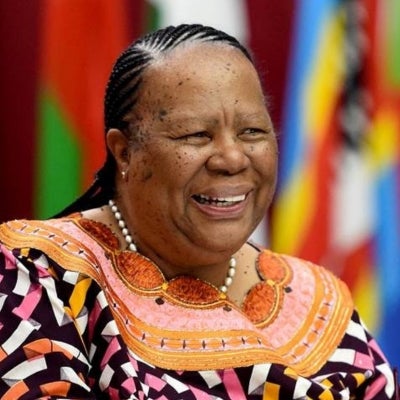
Grace Naledi Pandor
Grace Naledi Pandor is South Africa’s former Minister of International Relations and Cooperation from 2019-2024. She was part of the ministerial team of the cabinet of South Africa that initiated the genocide case against Israel at the International Court of Justice. She became an MP in 1994 and has amassed impressive experience in positions of public office, including Deputy chief whip of the ANC in the National Assembly from 1995 to 1998, served as the Deputy chairperson of the National Council of Provinces in 1998, and its Chairperson from 1999-2004. Her experience in education policy planning made her a welcome appointment as South Africa’s Minister of Education in 2004. She has been a member of cabinet ever since, and has served her country in the following portfolios: Minister of Education (2004-2009); Minister of Science and Technology (2009-2012); Minister of Home Affairs (2012-2014); Minister of Science and Technology (2014-2018); and Minister of Higher Education and Training (2018-19).
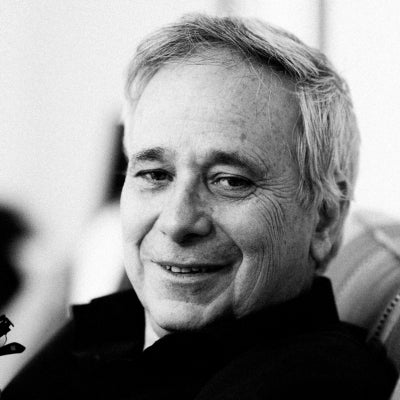
Ilan Pappe
Ilan Pappe is the Professor of History and Director of the European Centre for Palestine Studies at the University of Exeter, Exeter, England. He founded and directed the Academic Institute for Peace in Givat Haviva, Israel between 1992 to 2000 and was the Chair of the Emil Tuma Institute for Palestine Studies in Haifa between 2000 and 2006. He was a senior lecturer in the Department of Middle Eastern History and the Department of Political Science at Haifa University, Israel, between 1984 and 2006. He was appointed as chair in the Department of History in the Cornwall Campus, 2007-2009, and became a fellow of the IAIS in 2010. His research focuses on the modern Middle East and, in particular, the history of Israel and Palestine. He has also written on multiculturalism, Critical Discourse Analysis, and on Power and Knowledge in general.
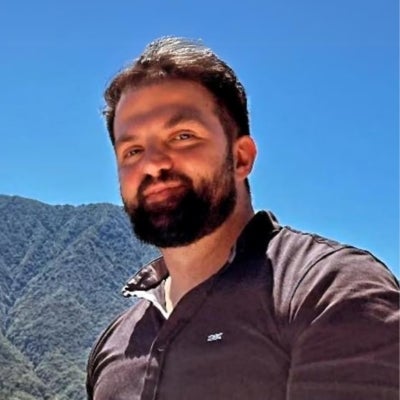
Fadi Quran
Fadi Quran is the Senior Director at Avaaz, a global civic movement with 69 million members dedicated to driving change worldwide. In his current role, he focuses on cultivating transformative leadership throughout the Southwest Asia and North Africa (SWANA) region, advocating for human rights across the globe, and organizing efforts toward Palestinian liberation. He has led numerous organizing and civil disobedience efforts in the occupied territories, which garnered international attention to the regime of Apartheid governing Palestinians, and resulted in multiple arrests and detentions. Previously, he served as the UN Advocacy Officer with Al-Haq’s legal research and advocacy unit in Palestine, where he specialized in international law and human rights advocacy. Beyond his advocacy work, he is an entrepreneur in the alternative energy sector, contributing to innovative solutions for sustainable energy. His insights and expertise have been featured in prominent media outlets, including The New York Times, NPR, The Guardian, AFP, TIME Magazine, Al Jazeera, and others. He holds degrees in Physics and International Relations from Stanford University. Follow him on Twitter @fadiquran for updates and insights.
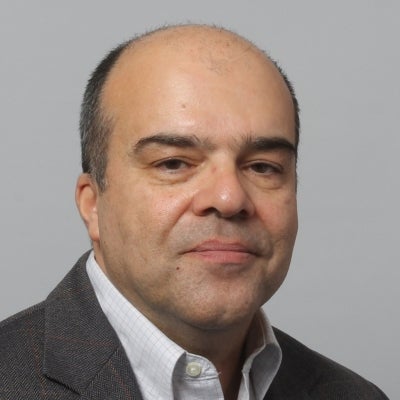
Mouin Rabbani
Mouin Rabbani is a researcher, analyst, and commentator specializing in Palestinian affairs, the Arab-Israeli conflict, and the contemporary Middle East. He has, among other positions, previously served as Principal Political Affairs Officer with the Office of the UN Special Envoy for Syria, Head of Middle East with the Martti Ahtisaari Peace Foundation, Senior Middle East Analyst and Special Advisor on Israel-Palestine with the International Crisis Group, and Researcher with Al-Haq, West Bank affiliate of the International Commission of Jurists. He is Co-Editor of Jadaliyya, where he also hosts the Connections podcast and edits its Quick Thoughts feature, Managing Editor and Associate Editor of the Journal of Peacebuilding and Development, and a Contributing Editor of Middle East Report. He is a Non-Resident Fellow at the Center for Conflict and Humanitarian Studies (CHS), Democracy for the Arab World Now (DAWN), and the Middle East Council on Global Affairs.
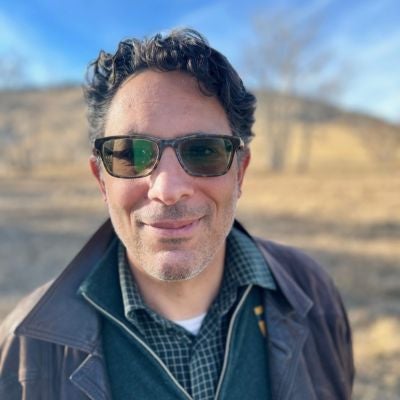
Wadie Said
Wadie Said is a Professor of Law and Dean’s Faculty Fellow at the University of Colorado School of Law, where he teaches courses in Criminal Law and Procedure. He is a member of the American Law Institute and a former federal public defender. He is also the author of numerous studies on criminal law, terrorism, international law, and human rights more broadly. He is currently writing a book on Palestine and American law.
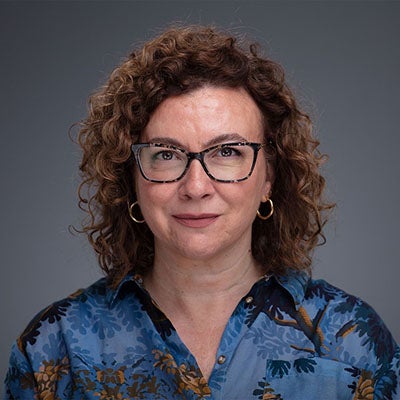
Nadya Sbaiti
Nadya Sbaiti is an Assistant Professor of History at Georgetown University in Qatar. She specializes in the social and cultural histories of the modern Middle East, with a focus on the Arab world. Professor Sbaiti studies gender, education, and nation-building in the post-WWI Levant with an examination of tourism, social class, and mobility. She is the co-editor of the volume Practicing Sectarianism: Archival and Ethnographic Interventions on Lebanon (Stanford University Press, 2022), and has authored journal articles, book chapters, essays on pedagogy, and archival research guides. She teaches Middle East-focused courses that include introductory surveys, as well as courses on women and gender, the history of education, science fiction, and uprisings in historical perspective. She has served as co-editor of the peer-reviewed Arab Studies Journal and is co-director of the Lebanon Dissertation Summer Institute.
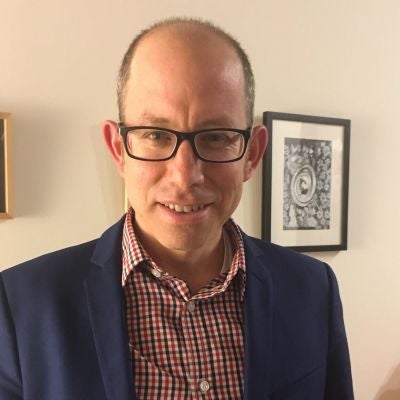
Raz Segal
Raz Segal is an Associate Professor of Holocaust and Genocide Studies and Endowed Professor in the Study of Modern Genocide at Stockton University. Dr. Segal has held a Harry Frank Guggenheim Fellowship, a Fulbright Fellowship, and he was recently a Senior Fellow at the Vienna Wiesenthal Institute for Holocaust Studies (2023) and an American Council of Learned Societies (ACLS) Fellow of the Summer Institute for the Study of East Central and Southeastern Europe, in collaboration with the Center for Advanced Studies in Sofia and the American University in Bulgaria in Blagoevgrad (2024). His publications include Genocide in the Carpathians: War, Social Breakdown, and Mass Violence, 1914-1945 (2016); Days of Ruin: The Jews of Munkács during the Holocaust (2013); and he was guest editor of the Hebrew-language special issue on Genocide: Mass Violence and Cultural Erasure of Zmanim: A Historical Quarterly (2018). He is at work on a book on the distortion, weaponization, and mobilization of Holocaust history in the reproduction of white supremacy and state violence, including a focus on Israel’s assault on Palestinians from the 1948 Nakba to the current genocidal assault on Gaza. In addition to scholarly publications, he has published op-eds, book reviews, and larger articles on genocide, state violence, and memory politics in Hebrew, English, and German in The Guardian, LA Times, The Nation, Jewish Currents, Haaretz, +972 Magazine, Time Magazine, Forward, and Berliner Zeitung, and he has appeared on Counter Points, MSNBC, Al Jazeera English, Democracy Now! and ABC News.
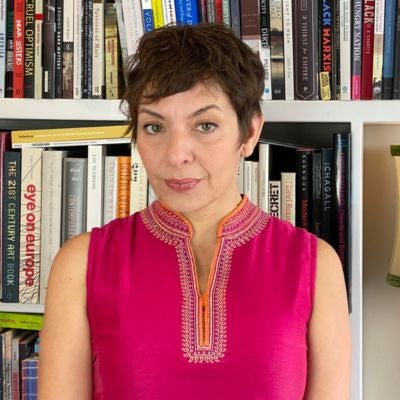
Sherene Seikaly
Sherene Seikaly is an Associate Professor of History at the University of California, Santa Barbara. Her book Men of Capital: Scarcity and Economy in Mandate Palestine (Stanford University Press, 2016) explores economy, territory, the home, and the body. Her forthcoming book, From Baltimore to Beirut: On the Question of Palestine tells a global history of capital, slavery, and dispossession. She is the Editor of Journal of Palestine Studies, Director of the Center for Middle Eastern Studies at UCSB, co-editor of the Stanford Studies Middle Eastern and Islamic Societies and Cultures Series, and co-editor of Jadaliyya.
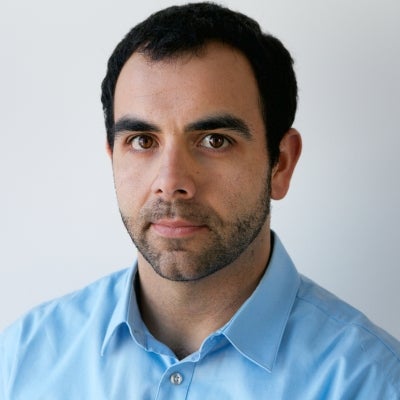
Omar Shakir
Omar Shakir serves as the Israel and Palestine Director at Human Rights Watch, where he investigates human rights abuses in Israel, the West Bank, and Gaza and has authored several major reports, including a 2021 report comprehensively documenting how Israeli authorities are committing the crimes against humanity of apartheid and persecution against millions of Palestinians. As a result of his advocacy, the Israeli government deported him in November 2019. Prior to his current role, he was a Bertha Fellow at the Center for Constitutional Rights, where he focused on US counterterrorism policies, including legal representation of Guantanamo detainees. As the 2013-14 Arthur R. and Barbara D. Finberg Fellow at Human Rights Watch, he investigated human rights violations in Egypt, including the Rab’a massacre, one of the largest killings of protesters in a single day.
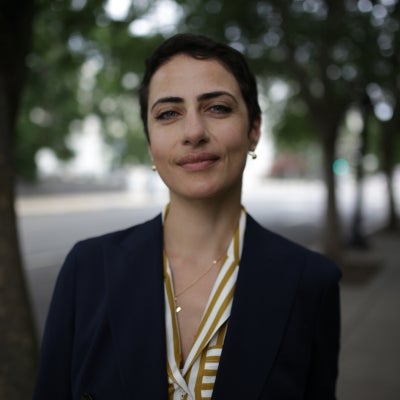
Diala Shamas
Diala Shamas is a Senior Staff Attorney at the Center for Constitutional Rights, where she works on challenging government and law enforcement abuses perpetrated under the guise of national security in the U.S. and abroad. She also litigates a range of international human rights issues, particularly focusing on Palestinian rights. She has most recently been counsel on a landmark case in U.S. federal court challenging Israel’s genocide against the Palestinian population in Gaza in U.S. Federal Court and worked on related international accountability efforts. Prior to joining CCR, Diala was a Clinical Supervising Attorney and Lecturer at Stanford Law School and supervised the CLEAR project at CUNY School of Law. Her practice includes working with social justice movements and advocates, including those in support of Palestinian rights, as they face suppression, helping them craft creative legal and advocacy strategies that build their power. She has worked to challenge the Muslim Ban, and represented individuals targeted for surveillance or placed on federal watch lists.
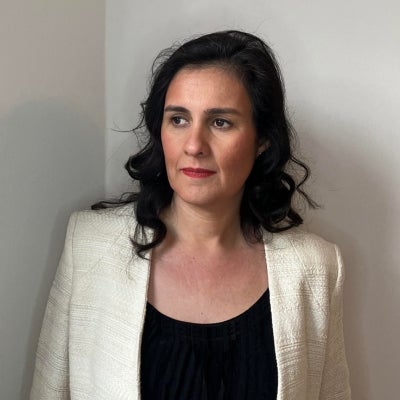
Kamila Shamsie
Kamila Shamsie is Writer-in-Residence at GU-Q. She has written eight critically acclaimed novels, including Burnt Shadows, A God in Every Stone, and Home Fire, which won the Women’s Prize for Fiction, was longlisted for the Man Booker Prize, and shortlisted for the Costa Prize. Four of her novels have won awards from Pakistan’s Academy of Letters. In 2019, she was announced as the winner of the Nelly Sachs Award in Germany, but that prize was later rescinded because of her support for BDS. She is a Vice-President of the Royal Society of Literature in the UK, and her novels have been translated into more than 30 languages.

Ahmed Shihab-Eldin
Ahmed Shihab-Eldin is an Emmy-nominated journalist, producer, and actor. He hosted a BBC documentary that won a British Journalism Award for Social Affairs, Diversity & Inclusion. Previously, he was a Senior Correspondent for AJ+, producing documentaries on social justice and human rights. Ahmed acted in The Red Sea Makes Me Wanna Cry, a Cannes Directors’ Fortnight Selection that won a Silver Star at the El Gouna Film Festival. He began his career with PBS, later moving to The New York Times and Al Jazeera English, where he co-hosted the Emmy-nominated The Stream. He also worked on documentaries for VICE on HBO and helped establish HuffPost Live. Recognized on Forbes’ “30 Under 30” list and featured on the cover of GQ Magazine, Ahmed taught digital media at Columbia University’s Graduate School of Journalism, where he graduated with honors. His work often explores the impact of displacement, drawing from his parents’ experiences as Palestinians. Currently, Ahmed is developing a podcast, acting in films, and documenting significant human rights issues related to Palestine.Ahmed Shihab-Eldin
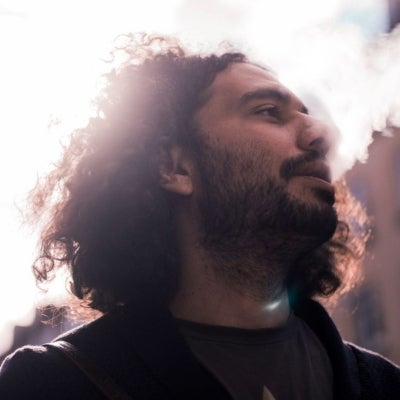
Amer Shomali
Amer Shomali is the director of the Palestinian Museum and a multidisciplinary artist who uses painting, films, digital media, installations, and comics as tools to explore and interact with the sociopolitical scene in Palestine. Much of his work examines the creation and the use of the Palestinian revolution’s iconography. His artworks are part of several collections: The British Museum, The Arab World Institute, Barjeel Art Foundation, The Samawi collection, The Museum of Manufactured Response to Absence (MoMRtA), Birzeit University Museum, Al-Qattan Foundation; as well as the private collections of Dr. Ramzi Dalloul, Ms. Rana Sadik, Mr. Hashim Shawa, Mr. Rami Nimer, and Mr. George Al Ama. he co-directed an award-winning animated documentary, The Wanted 18, which premiered at the Toronto International Film Festival in 2014. The film was awarded the best documentary award in Abu Dhabi, Carthage, Traverse City, and Al-Jazeera Film Festivals. The Wanted 18 was in the official submission lists for the foreign language and documentary categories of the Oscars 88th.
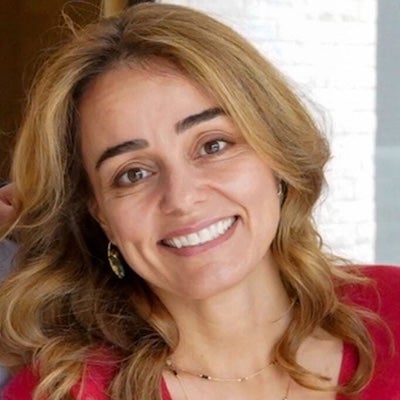
Muna Sukhtian
Muna Sukthian has had a career working with private, public, and non-profit organizations. She chairs the board of Microfund for Women, Jordan’s largest not-for-profit microfinance institution. She has also contributed to financial inclusion on an international level, as co-chair of Women’s World Banking (New York) and board member of the Consultative Group to Assist the Poor (Washington DC). With enthusiasm for supporting organizations that give opportunities to youth and women, Muna serves on the boards of the Ghiath and Nadia Sukhtian Foundation, Crown Prince Foundation, Prince Hussein Technical University, Queen Rania Teachers’ Award, Abdulhameed Shoman Foundation and Taawon (Palestine). She also served as chief of staff of Queen Rania Al Abdullah, as a council member of the Greater Amman Municipality, and on the Royal Committee to Modernize the Political System. She started her career in management consulting in the US and worked in pharmaceuticals. As a director of GMS Holdings and a member of the investment committee, she continues to play an active role in her family’s business.
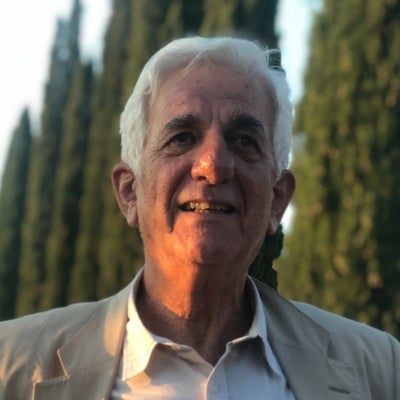
Salim Tamari
Salim Tamari is IPS senior fellow and the former director of the Institute of Jerusalem Studies. He is a former editor of the Jerusalem Quarterly and Hawliyyat al Quds. He is the Professor Emeritus of sociology at Birzeit University. He has authored several works on urban culture, political sociology, biography and social history, and the social history of the Eastern Mediterranean. Recent publications include Camera Palestina: Photography and the Silenced History of Palestine (2023); The Great War and the Remaking of Palestine (2020); Year of the Locust: Palestine and Syria during WWI (UC Press, 2010); The Mountain Against the Sea (University of California Press, 2008); Biography and Social History of Bilad al Sham (edited with I. Nassar,2007, Beirut IPS); Pilgrims, Lepers, and Stuffed Cabbage: Essays on Jerusalem’s Cultural History (edited, with I. Nassar, IJS, 2005) and Essays on the Cultural History of Ottoman and Mandate Jerusalem (editor, IJS, 2005).
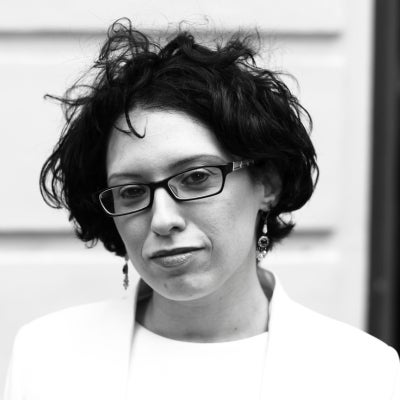
Lana Tatour
Lana Tatour is a Senior Lecturer in Global Development at the School of Social Science. She was the 2019–20 Ibrahim Abu-Lughod Postdoctoral Fellow at the Center for Palestine Studies at Columbia University. Her co-edited book, Race and the Question of Palestine, is forthcoming with Stanford University Press in 2025. She is also currently completing a monograph provisionally titled Ambivalent Resistance: Palestinians in Israel and the Liberal Politics of Settler Colonialism and Human Rights.
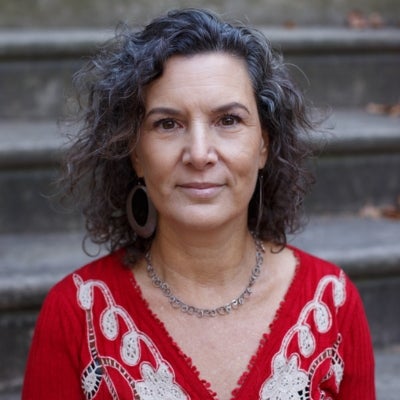
Rebecca Vilkomerson
Rebecca Vilkomerson is the Co-Director of Funding Freedom, which organizes support for Palestinian liberation within philanthropy. She is the co-author, with Rabbi Alissa Wise, of the 2024 book Solidarity is the Political Version of Love: Lessons from Jewish Anti-Zionist Organizing, published by Haymarket Books. She authored the report Funding Freedom: Philanthropy and Palestinian Freedom Movement, published by Solidaire Network in 2022. From 2009-2019, she was the Executive Director of Jewish Voice for Peace. She serves on the boards of Showing Up For Racial Justice (SURJ) and her synagogue in Brooklyn, NY.
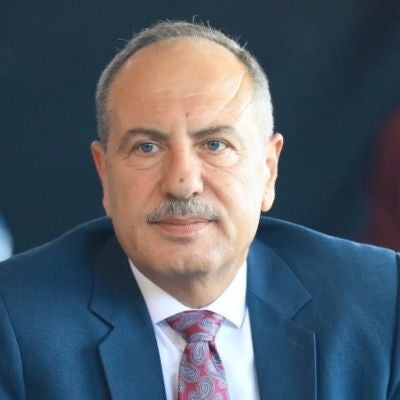
Issam Younis
Issam Younis is the General Director of the Gaza-based Al Mezan Center for Human Rights, a Palestinian non-governmental organization with consultative status with the United Nations Economic and Social Council (UN ECOSOC). He served as a member of the Board of Trustees at Al-Azhar University in Gaza from 2008 and 2018. Between 2018 and 2021, he held the position of Commissioner General of the Palestinian Independent Commission for Human Rights (ICHR) and was also a member of the Palestinian Higher Education Council from 2019 to 2021. He received several human rights awards and has published numerous articles on human rights and international law.
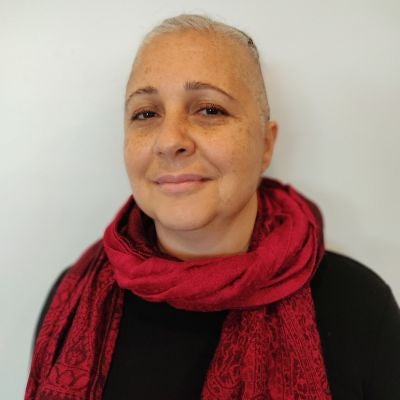
Zeina Zaatari
Zeina Zaatari, is the Director of the Arab American Cultural Center at the University of Illinois, Chicago. She has worked on gender and racial justice in Arab and Arab American communities both within academic and non-profit spaces in programming and producing knowledge. Before joining UIC in January 2019, she worked as Research Director at Political Research Associates, an organization that studies movements on the Right. She serves as the Associate Editor for the Middle East and Africa (northern and sub-Saharan) for the Encyclopedia of Women and Islamic Cultures. She is a trainer and mentor for The Muslim Women in the Media Training Institute supporting journalism graduate students and junior journalists in better coverage and representation of Muslim women and their issues. She is a co-founder and elected board member to the Women Human Rights Defenders-MENA Coalition. Her recent publications include two co-edited books: Routledge Handbook on Women of the Middle East co-edited with Suad Joseph (2023) and The Politics of Engaged Gender Research in the Arab Region: Feminist Fieldwork and Knowledge Production co-edited with Suad Joseph and Lena Meari (I.B.Tauris 2022). Among her other publications include: Sarah Hegazy and the Struggle for Freedom, Middle East Report Online (2020), Social Movements and Revolution in A Companion to the Anthropology of the Middle East (2015, Wiley-Blackwell), and Desirable Masculinity/Femininity and Nostalgia of the “Anti-Modernity”: Bab el-Hara Television Series as a Site of Production in Sexuality and Culture (2014). Zeina is president-elect of the Association for Middle East Women’s Studies for 2024-2026.
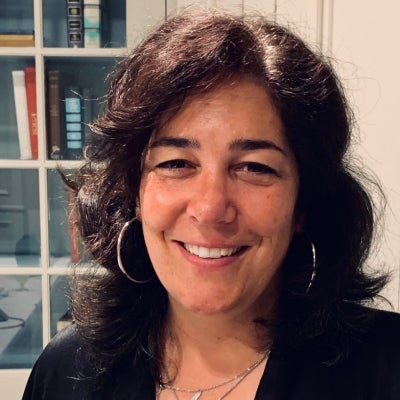
Jennifer Zacharia
Jennifer Zacharia is a lawyer and writer. A graduate of Columbia Law School, she is currently a researcher at the University of California, Berkeley, and has worked in a variety of human and civil rights organizations. Her articles have appeared in the Boston Review and the Nation, and she has also given several endowed lectures, including the Edward W. Said lecture at the Palestine Center and the Paul Kardoush Memorial Lecture at the University of Houston.
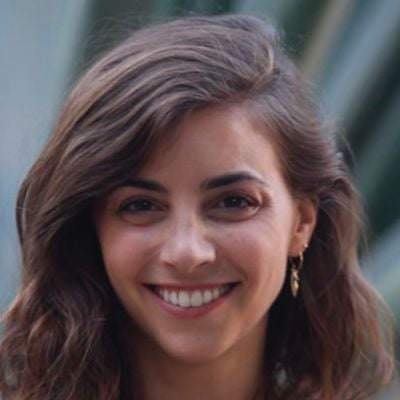
Simone Zimmerman
Simone Zimmerman is an organizer and strategist based in Brooklyn, New York. She is the protagonist of the film Israelism, about the deepening generational divide in the American Jewish community over Israel and Palestine. She is a co-founder of the US-based Jewish anti-apartheid organization IfNotNow, which has been a part of the ceasefire mobilizations across the US since October 7. She is currently the director of Media & Special Projects for the Diaspora Alliance, an international organization dedicated to fighting antisemitism and its instrumentalization. She also serves on the board of Jews for Racial and Economic Justice Action and the Advisory Board of Jewish Currents Magazine.